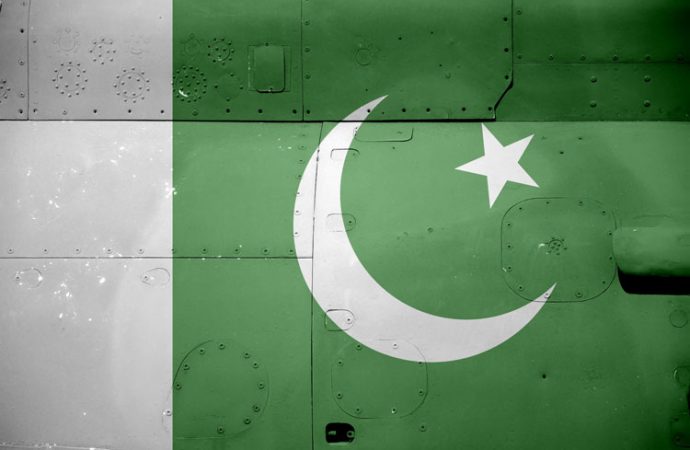Author Recent Posts Zille Huma Latest posts by Zille Huma (see all) THE DILEMMA OF DEVALUATING RUPEE – July 27, 2023
The devaluation of Rupee has long been a cause of concern for the government and the people of Pakistan. Experts have predicted that the chances of recovery of the Rupee seem bleak for the foreseeable future. The devaluation of national currency refers to a decrease in its value vis a vis gold or US Dollar. This causes inflation and subsequent increase in the import bill. Consistent devaluation has resulted in a cycle of cost-push inflation and economic hardships. To break this cycle, Pakistan needs a long-term plan that focuses on large scale production of exportable goods, and exploring new markets with effective marketing strategies. By pursuing these strategies, Pakistan can potentially improve rupee standing and improve its overall economic situation.
Currency devaluation in Pakistan is influenced by a multitude of factors. The significant reliance of industries on imported raw materials, industrial products, and capital goods, combined with impediments such as quotas and tariffs imposed by developed countries, all contribute to currency devaluation. Currency crises are also influenced by a variety of economic and political variables, including corruption. One key factor that is frequently mentioned is the rising price of imported crude oil, which reached at about $70.80 USD per barrel in May 2023.[1] This increase in oil costs further aggravates the current account deficit (CAD).
Another cause is the mismatch between aggregate demand and domestic supply, which leads to dependency on imports. As imports exceed exports, the current account deficit increases, necessitating financing from depleted foreign exchange reserves or capital inflows. Attracting capital inflows, however, becomes difficult due to a lack of confidence in the country’s financial status. In response to large expenditures, the former administration borrowed from the central bank or foreign organizations, resulting in higher inflation. This inflationary environment has a detrimental impact on exports because it distorts pricing, worsening the currency crisis. Additionally, devaluation raises industrial costs and reduces capacity utilization due to increased prices of imported inputs.
Pakistan is currently facing various economic issues, emphasizing its status as an underprivileged country. The country’s expanding population is a major issue that has a direct impact on economic progress. The burden of high debt, combined with slow growth, has pushed Pakistan to a place where advancement is becoming increasingly impossible. Unsatisfactory export performance and insufficient tax revenues aggravate the situation, resulting in a rapid growth in unemployment. Due to increasing population, this overall scenario paints a grim image of the country’s economic status, with cases of default necessitating large compromises of national sovereignty.
To attract money flow and increase the value of the currency, higher interest rates can be implemented, which would encourage banks and financial institutions to move money to the country in search of better returns on savings. Furthermore, targeted long-term assistance should be offered to small enterprises, and industrial zones should be formed in a variety of places to promote economic growth. It is critical to prioritize domestic investment above depending on foreign financing for development initiatives. Governments should strive to cut bills, payments, and payrolls while encouraging private sector participation in important projects.
It is also crucial to raise savings and maintain a stable political climate to encourage economic development and investment. The Export Promotion Bureau, embassies, and high commissions should make efforts to identify new markets for Pakistani products through trade fairs, business delegations, and foreign advertising. Diversifying the export base by focusing on software, handicrafts, fresh fruit, livestock, and flowers can also help with economic growth. It is also critical to focus on value added items by building adequate processing and packaging facilities for fish, fruits, and vegetables. The implementation of these measures is intended to stabilize the economy and put it on a growth path.
Exports and Foreign Direct Investment (FDI) should be prioritized since they strengthen the currency and help the economy. More FDI equals more funds entering the economy, which helps to close the budget imbalance. Selling foreign exchange assets and purchasing back the country’s own currency can also help the currency improve. Maintaining lower inflation than competitors can make the country’s goods more appealing and raise demand, contributing to a long-term gain in the value of the currency. However, strengthening economic fundamentals is critical to achieving a strong currency in the long run. This involves implementing supply-side measures like privatization and regulatory cuts to boost competitiveness and lower manufacturing costs. Furthermore, supporting economic and political stability, as well as productivity development, will contribute significantly to the currency’s worth.
Overall, currency devaluation in Pakistan is influenced by factors like import dependency, aggregate demand-supply mismatch, and inflationary pressures. Its impacts include reduced export competitiveness, inflation, and investor uncertainty. Addressing these concerns necessitates comprehensive steps to boost local output, reduce import dependency, improve economic stability, and increase faith in the country’s financial system. Promoting exports, attracting foreign direct investment, ensuring political stability, exploring new markets, and implementing supply-side policies can help control currency devaluation and pave the way for a stable and prosperous economic future.
[1] Petroleum Prices in Pakistan (Gasoline, Diesel, Crude /Litre, Barrel & Gallon. Including LPG, Electricity Price today in Pakistani Rupee) (oilpricez.com)
- THE DILEMMA OF DEVALUATING RUPEE - July 27, 2023





















Leave a Comment
Your email address will not be published. Required fields are marked with *